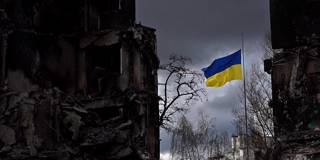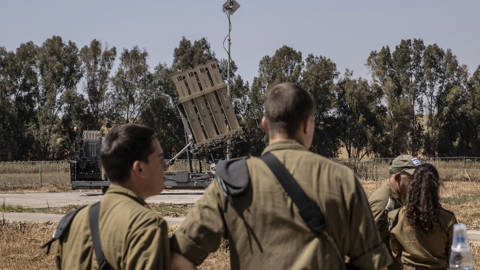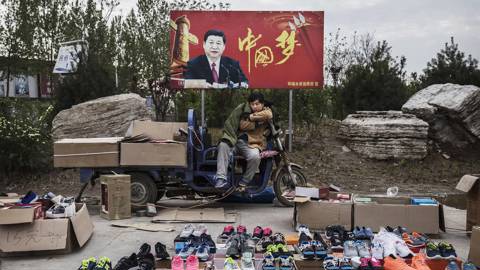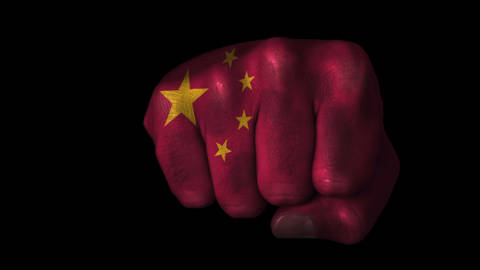Putin Must Not Win
Russia must not gain a victory in a war that politically, economically, and, increasingly, militarily, it has already lost. The situation in Europe and globally would have been a very different situation today if Vladimir Putin had been able to implement his plan to take Kyiv in five days, like in Crimea, and install a proxy ruler.
Irena Grudzińska Gross: After Vladimir Putin’s speech declaring the annexation of Ukrainian territories, you wrote a commentary calling for the “denazification” of the Kremlin. You ended with a variation of a Shakespeare line: “Let’s do what we must and come what may.” What did you have in mind?
Adam Michnik: [laughs] I was using the nineteenth-century motto of a Polish émigré group in Paris called Hôtel Lambert, which sounds like, “Do what it takes, and what will be will be.” Of course, we don’t know what will happen, we are unable to influence directly the course of the Russian invasion, but one thing is certain – it is our own decision how to act. Will we “balance” what Russians are doing with “Ukrainians are not so saintly after all,” like Amnesty International did recently? Or like Noam Chomsky, who seems to condemn the invasion, but in the same breath mentions Iraq? It does not mean that I’ve changed my opinion about the American action in Iraq, which I think was a mistake, but to equate Iraq with Ukraine…
IGG: Chomsky does not equate Iraq with Ukraine, he compares the actions of the United States to those of Russia.
AM: Yes, but they are not on the same level!
IGG: I read that Shakespearean line, especially “come what may,” as your acceptance of an incalculable risk – Putin’s growing nuclear threats – though you did not mention it in your commentary.
AM: Let’s look at the matter calmly. Can Putin use nuclear arms? Yes, he has them. Will Putin use nuclear arms? We don’t know. Yet one thing is clear. He depends now on not using them but having results as if he did. We cannot agree to that. Because then what remains to us is to raise our hands in surrender and be marched to the Gulag.
IGG: We are talking here about issues that are very murky, about which we know little except for the cases of Hiroshima and Nagasaki. What do you know about the nuclear issue? How do you think about it?
AM: I know what nuclear arms mean politically. At the beginning, this instrument changed American relations with the world. The attacks on Hiroshima and Nagasaki were intended to end the war, because American soldiers were dying day after day and President Harry Truman feared that a million would die in an invasion of Japan’s home islands.
IGG: Today, some revisionist historians dispute this last reason for the bombing of Hiroshima.
AM: I don’t say it was the only motivation, but it cannot be rejected. Japan did not want to surrender, and felt no responsibility for the lives of thousands of people who could die. I once visited the Hiroshima Peace Memorial Museum and found it surprising: There was no war before the bombing of Hiroshima, no Pearl Harbor, nothing.
IGG: This is a museum devoted to the bombing of Hiroshima, not to the war. It is a memorial.
AM: This is a type of mendacity I do not accept. But of course, we need to be very cautious in the matter of nuclear weapons, and I think that this principle is understood in the American empire, if I may use this term. When General Douglas MacArthur wanted to use atomic weapons in Korea, Truman did not allow it and dismissed him.

Subscribe to PS Digital
Access every new PS commentary, our entire On Point suite of subscriber-exclusive content – including Longer Reads, Insider Interviews, Big Picture/Big Question, and Say More – and the full PS archive.
I don’t know what will happen in Russia. Perhaps nobody will be able to stop Putin, who is a crazy psychopath. But perhaps his generals and oligarchs will block him – they know that using a nuclear weapon would be their end as well. I am convinced, though, that the worst thing would be to submit to Putin’s blackmail, because his logic is the same as Hitler’s: If they allow you to do something, it is because they are weak, and you have permission to continue. Hitler started with the Anschluss, then occupied Sudetenland. Even then, some suggested to allow him to take the Danzig Corridor. That would not stop him.
IGG: So, you think that if Putin is successful, he will not stop at Ukraine, but will move into Europe, into Poland?
AM: Yes, or to Moldova, or somewhere else. If he will find that nuclear blackmail is sufficient, he will do such things. We would have been in a very different situation today if he had been able to implement his plan to take Ukraine in five days, just like Crimea, and install a proxy ruler. Ukraine surprised the entire world (including me) by its efficient and heroic defense. It must not be betrayed. Appeasement is not acceptable. Ukraine must not be sold out. It needs to be defended and helped.
There is one more thing that seems important to me. Russian propaganda tries to revive the rhetoric of the Great Patriotic War: We are again defending ourselves against fascism just like we defended ourselves against Hitler. Totally wrong.
Here I am not speaking about marginal milieus and social networks within Russia. I am speaking about the atmosphere of the Kremlin hawks. They clamor for an even stronger attack on Ukraine. This is a language of fascism, of Bolshevism, a strange mixture of both.
Recently, I heard an interview with my friend the Nobel Peace Prize laureate Dmitri Muratov. He said he was worried about what will happen after Putin, that it will be even worse. I don’t agree. I think that the successor to Putin will have to start by ending the war, and in this sense, it is not important who that person used to be. After Stalin, it was not important that Lavrenty Beria was the head of the NKVD. He had to close the case of the Jewish doctors, partly open the prisons, address relations with Germany. And this was Beria! The very worst of the worst introduced the first Soviet thaw. So, I think that the successor regime to Putin will not be bad. But for now, these are only speculations.
IGG: And they may be a bit premature. Putin’s grip on power still seems tight.
AM: No, it is all falling apart. Look at how the military mobilization is going. A million young men have left Russia. They are escaping – to Kazakhstan!
IGG: They cannot go West, Europe is closed to them.
AM: I do not agree with this Russophobic politics. And at Gazeta Wyborcza, we write about it continuously. We are publishing these other Russians to show that it is not the entire Russia that is for Putin. Yes, it is a majority, but the explosion of Russophobia is very dangerous and could cost us all a lot.
IGG: I wonder how you can combine your full-on support for Ukraine with such an open attitude towards Russia.
AM: It is very simple. I think that the defeat of Putin is in the interest of Russia. Russian citizens who share such a position should be supported, not boycotted.
IGG: There are those, for example Fiona Hill, the American Russia expert and former National Security Council member, who declare that the Third World War is already on.
AM: I agree with Fiona. I remember her from Warsaw. Of course, it is a matter of nomenclature. When asked by journalists if this is the beginning of a new cold war, I myself said that the war is already very hot. I don’t want to fight over words. This is a very deep conflict, as deep as with the Third Reich.
IGG: Equally deep, but happening in the shadow of a possible nuclear catastrophe. Hitler might have dropped the bomb if he had had it.
AM: It is not clear. Didn’t he want to blow up all of Germany, but Admiral Karl Dönitz and Field Marshal Wilhelm Keitel prevented it? Putin is not a politician interested in dialogue or compromise. He kills, rapes, despoils. He wants to annihilate Ukraine. We must not back down.
IGG: And what do you think, in the context of Ukraine’s war against the Russian invader, about the current anti-German turn in the Polish government’s politics? What do you think about their demands for World War II reparations from Germany while the current war is going on?
AM: Poland has found itself in the hands of people who are irresponsible, unpredictable, and incompetent.
IGG: Do they have the same pro-Russian politics as Hungarian Prime Minister Viktor Orbán has?
AM: Their politics is not directly pro-Russian, but its results are. It is certainly anti-European. Here we have two scenarios. The weaker scenario aims at transforming the European Union following the electoral victories of post-fascists in Italy, the right in Sweden, and, in the near future perhaps, Marine Le Pen in France. Brexit they’ve already got. But a more intense version is first to paralyze the Union and then destroy it.
The very essence of the EU consists of the great compromise between the democratic left and democratic right. This compromise is being attacked from two directions. Let’s take France: [Jean-Luc] Mélenchon and Le Pen have right now a common objective: to knock down “the dictates of Brussels.”
In Poland, we have a different kind of paradox. The government’s domestic policies follow the model of Putin’s state, but its foreign policy supports Ukraine. At the same time, it declares that the main danger comes from the West, from Germany. If Russia would come with her tanks, we would know how to defend ourselves. But if the West poisons our soul with its gays, abortions, and drugs, we will be unable to manage it. And this is said by some respected people!
IGG: What is the reaction of the EU to such attitudes?
AM: The EU turned toward stronger integration, which is a good thing. And this is what worries people such as Orbán and [Poland’s de facto leader] Jarosław Kaczyński, because they reject what we call parliamentary democracy and the market economy. We are aware that our system is not perfect, but what is proposed by Putin, Orbán, and Kaczyński will squander all we achieved after 1989, after the fall of the Berlin Wall, after the collapse of the Soviet empire.
We cannot allow that to happen. We must defend ourselves and the success of our defense depends on each of us. This is why the commentary we spoke about at the beginning of our conversation expresses both determination and a deep anxiety.
IGG: If we assume that what we have here is a third world war, does the non-nuclear European Union count for much? Is it a war between the United States and Russia?
AM: France does have nuclear arms… So does EU-adjacent Britain. But the idea that this war is between Russia and the US is a fantasy of Russian propaganda and American megalomaniacs. Of course, the European Union counts very much as an important economic and political participant. From the military point of view, of course, there is no comparison with the US, but Europe is sending substantial material and military aid to Ukraine.
IGG: You are saying that Russia is falling apart. Does this mean that you are a cautious optimist, – that you believe in the victory of Ukraine?
AM: One thing is certain: politically, economically, and in terms of perception, Putin has already lost this war. But what victory would look like is unclear. Nobody knows how to imagine it. Neither do I.




